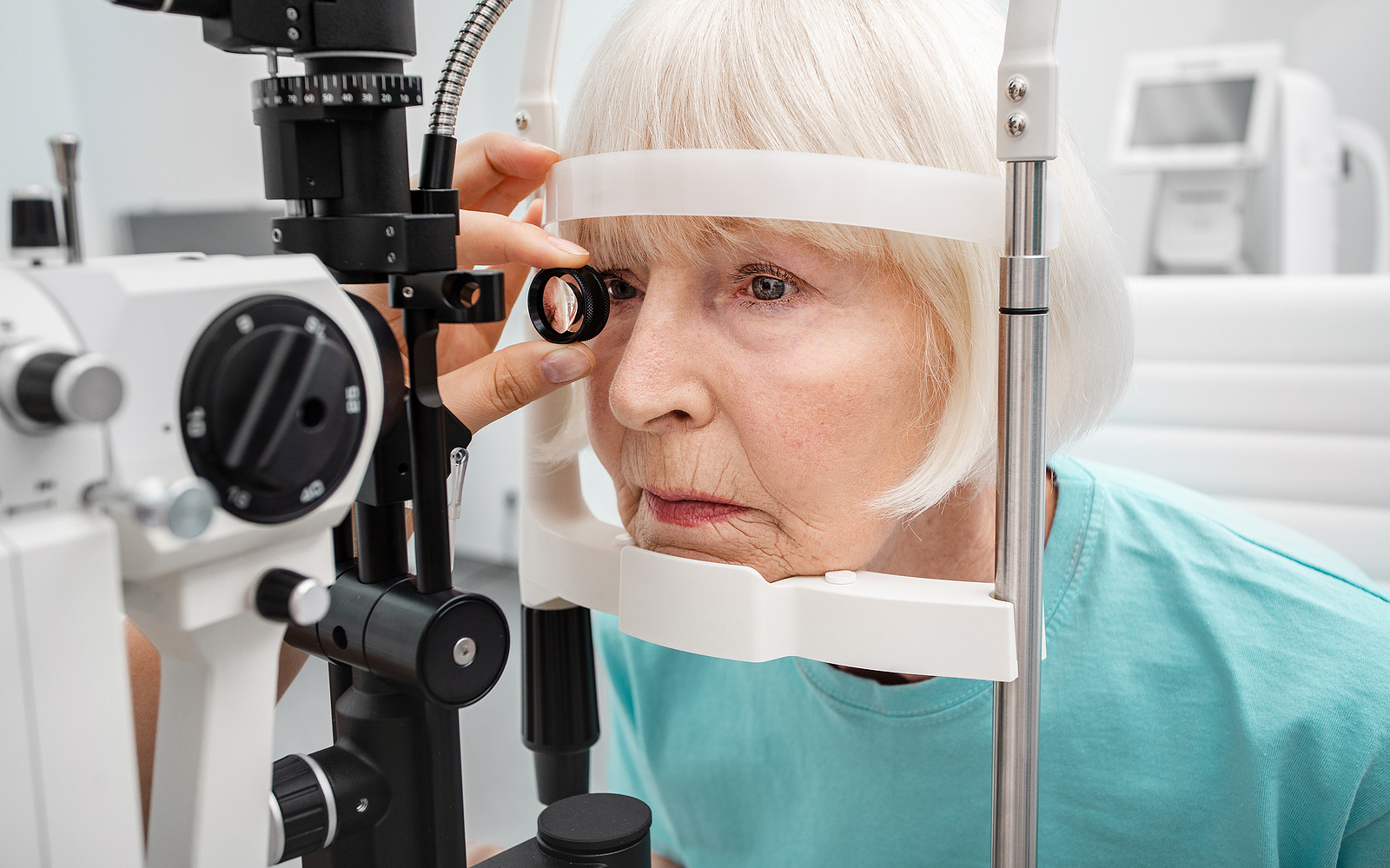Can Diet Reduce Your Risk for Age-Related Macular Degeneration?

Some research shows that a Mediterranean diet may provide natural, nutritious protection against age-related macular degeneration (AMD).
Age-related macular degeneration (AMD) affects millions of people around the world, but the exact causes aren’t completely understood. While age is a known risk factor, it’s not necessarily a cause. Because the causes are unknown, it’s been difficult for scientists to deduce what therapies might be effective in keeping AMD at bay.
However, some research indicates that vitamin A might protect against AMD, hinting at a potential connection between diet and AMD. That finding prompted two recent studies, which both suggest that the Mediterranean diet — a diet composed largely of fruits, vegetables, legumes, healthy fats, and unprocessed carbohydrates — may actually protect against AMD.
What Research Shows About AMD and Diet
The first study about diet and AMD examined the diets of 768 people with AMD and 1224 similarly-aged people who didn’t have the condition. The researchers asked the participants to fill out a questionnaire about their eating habits and then used the data to figure out how closely — on a 0-9 scale known as the mediSCORE — they adhered to the Mediterranean diet.
The study ultimately found that participants with mediSCOREs of six or higher were 27% less likely to develop AMD than the other study participants. Additionally, people who ate relatively large amounts of vegetables or nuts were less likely to have AMD.
The second study worked similarly: it calculated the mediSCOREs for 5,000 elderly Europeans and found that those with mediSCOREs between 6 and 9 were 41% less likely to develop advanced AMD than participants with scores between 0 and 3.
Limitations of Studies about AMD and Diet
Both studies mentioned above use what’s called a “case-control method,” which means they examined data from a large number of people and inferred what the relationship may be between various characteristics present in the population. However, case-control studies are not necessarily able to provide definitive proof of a link between two variables.
Ideally, a study would confirm an association between two variables through a randomized control trial. In a randomized control trial, subjects are randomly divided into two groups that receive different treatments. In this case, one group would eat a Mediterranean diet while the other did not. Years or decades down the line, scientists would see which group eventually developed AMD at a higher rate.
Without a randomized trial, we can’t make a definitive statement about whether or not a Mediterranean diet prevents AMD. Still, these studies provide evidence that there’s at least an association between a Mediterranean diet and reduced risk of developing AMD. While diet may play a small role in protecting your eyes, frequent eye exams are the best way to monitor and prevent AMD. If you notice any of the signs and symptoms of AMD, contact the Swagel Wootton Eye Institute at our Mesa or Chandler locations today to schedule a consultation.
[DISPLAY_ULTIMATE_SOCIAL_ICONS]








